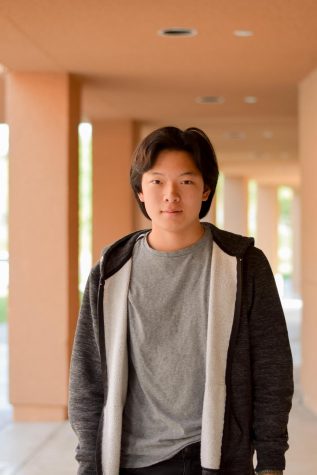Remembering Supreme Court Justice Ruth Bader Ginsburg
A pioneer for women’s rights, Justice Ginsburg served on the Supreme Court for twenty-seven years.
September 27, 2020
The United States mourned the untimely death of Supreme Court Associate Justice Ruth Bader Ginsburg from complications of metastatic pancreatic cancer on Sept. 18, who spent her life battling injustices as a powerful voice for women’s rights and pioneer for gender equality.
Born on March 15, 1933, in Brooklyn, New York, Ginsburg displayed a love for education and capacity for knowledge since her youth, graduating as valedictorian of the Cornell University class of 1954 and attending Harvard and Columbia Law Schools.
While studying at Harvard, she experienced gender discrimination firsthand as one of the nine female students at in a class of 500. Undeterred by tribulations, she became the first female member of the student- run Harvard Law Review.
Despite her excellence in academia, Ginsburg had difficulty finding a job in the discriminatory workforce of the 1960s. She eventually became a clerk under District Judge Edmund L. Palmieri, yet she was consistently offered significantly lower salaries than those given to her male counterparts.
In 1963, Ginsburg became a professor at Rutgers University Law School, holding this position until she was offered a job at her alma mater, Columbia. She became the school’s first female tenured professor in 1972, and while there, she also served as the director of the Woman’s Rights Project of American Civil Liberties Union and argued six milestone cases in front of the US Supreme Court.
After serving as the judge for the US Court of Appeals for the District of Columbia for 13 years, Ginsburg became the second woman in history to serve on the Supreme Court when she was assigned by President Bill Clinton and began her streak of arguing landmark cases on the side of progressivism. Nicknamed “Notorious R.B.G.” after late rapper The Notorious B.I.G., Ginsburg had become a pop culture figure appealing to younger generations while she staunchly advocated for gender equality, civil liberties, protection of workers, voting rights, abortion rights and separation of church and state.
She was confirmed by the Senate 96-3 despite some members doubting her ability to properly transition from a social activist to an arbiter of law. As a fierce champion of feminism early on, Ginsburg co-authored the merits brief of Reed v. Reed (1971), extending the protections of the Equal Protection Clause of the Fourteenth Amendment to women. Notably, Ginsburg wrote the landmark decision of United States v. Virginia (1993), deeming it illegal for the Virginia Military Institute to deny women.
Ginsburg also wrote numerous compelling opinions that often differed from the majority. She iconically concluded her opinion with her famous “I dissent” instead of the usual “Respectfully, I dissent.” In Lilly Ledbetter v. Goodyear Tire & Rubber Co. (2007), her written dissent countering the majority’s denial of sex discrimination in the employment was so influential that it led to the Lilly Ledbetter Fair Pay Act being passed in 2009, ensuring non-discriminatory pay practices.
Despite facing many adversities, Ginsburg demonstrated an unmatched resilience, overcoming many personal struggles throughout her career. She lost her mother to cancer before her high school graduation, and years later, her husband Martin Ginsburg battled testicular cancer from 1956 until his death in 2010.
In her last twenty years on the Supreme Court, Ginsburg took on her responsibilities while suffering from serious health issues herself, including colon cancer, pancreatic cancer and malignancies on her left lung. She endured heart surgery and radiation treatment when her pancreatic cancer returned in 2019, barely missing a day in court.
Ginsburg has left her mark on the world as arguably the most accomplished lawyer of her lifetime next to Justice Thurgood Marshall. Her voice for equality continues to ring and inspire people across America, as she famously said,
“To make life a little better for people less fortunate than you, that’s what I think a meaningful life is. One lives not just for oneself but for one’s community.” Her immersion in litigation has transcended politics.
Ginsburg’s death has left an empty seat to fill in the Supreme Court less than seven weeks before Election Day, sparking controversy as many predict that Republicans will use this opportunity to tighten the conservative grip in the court with a 6-3 majority.
Chief Justice John Roberts, proven to be an unreliable vote for Republicans by siding with the left on many notable issues in the past, will no longer be the deciding vote between closely fought cases, as he will only be the fourth vote for a Democratic cause instead of the fifth. Highly controversial cases concerning the Deferred Action for Childhood Arrivals and abortion and contraceptive rights will now likely be decided in favor of Republicans.
Clear changes to legislation following to the death of Ginsburg may come as early as this fall, during which a Republican-brought challenge to Obamacare will be argued in front of the Supreme Court. A tied vote on this issue can bring about an appeals court decision that ultimately nullifies key components of the health care law. And, because associate justices get life tenures, Democrats fear that the Republican stronghold on law will continue for decades to come.
Days before her death, Ginsburg said “My most fervent wish is that I will not be replaced until a new president is installed.” Trump has announced on Tuesday that he will be selecting the Supreme Court nominee this Saturday at 5 p.m. although confirmation vote on the nominee will likely not take place until after the election. On Monday, Trump stated that he was considering five candidates before adding that he was really focused on “one or two” names.



























































